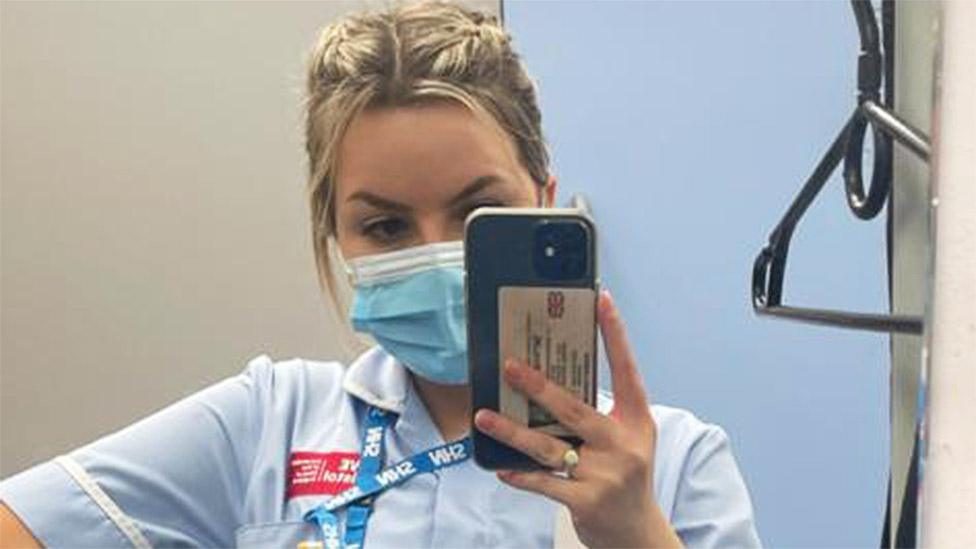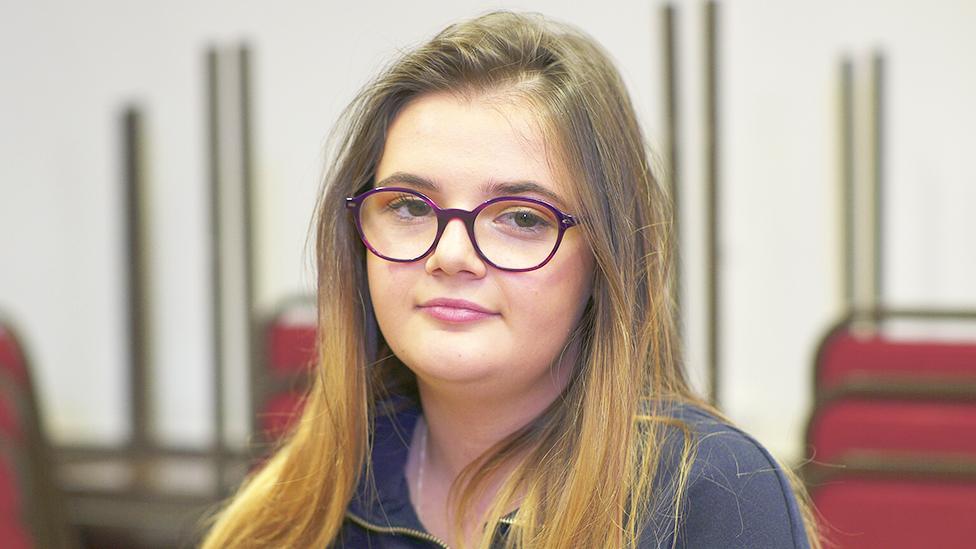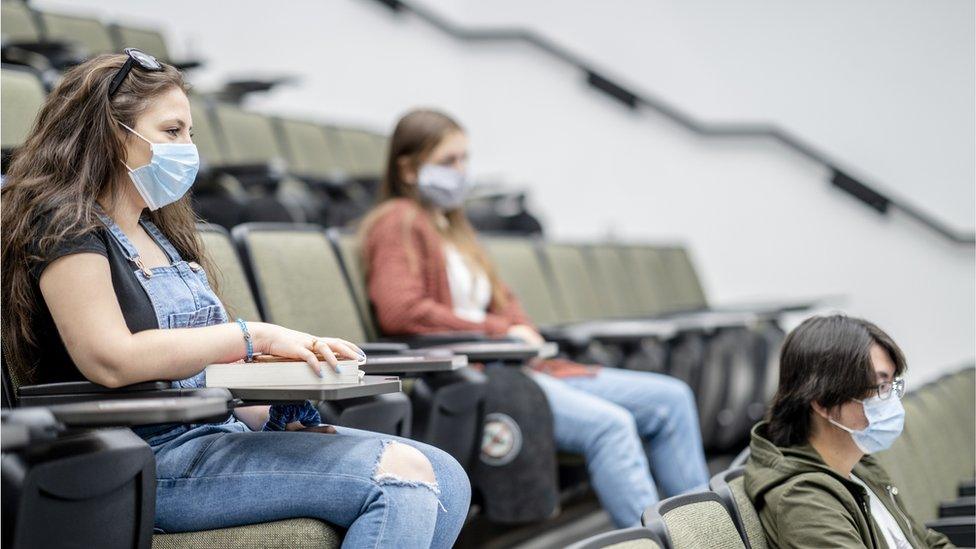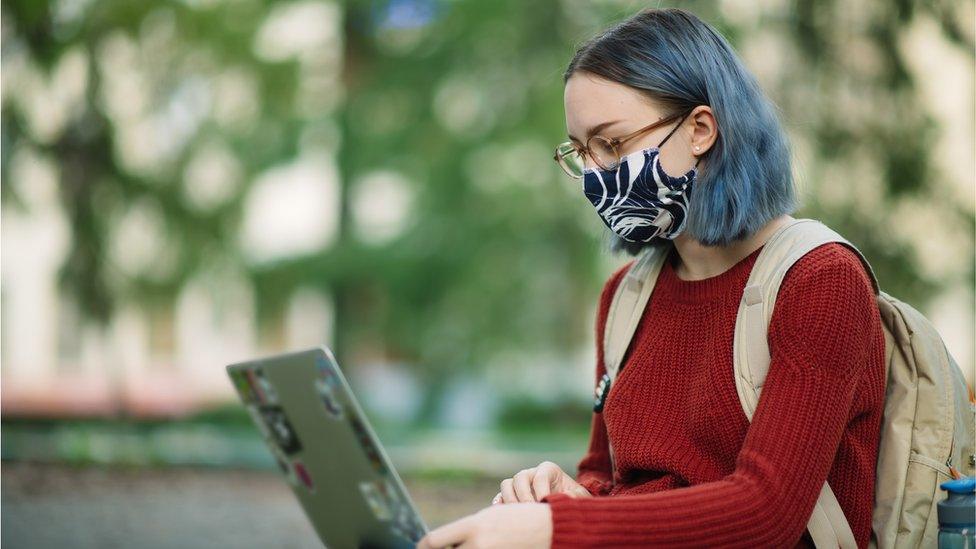Mental health negatively affecting almost 50% of UK students in survey
- Published

Universities need "immediate improvements" so students get the mental health care they need, according to a new survey.
Out of 7,200 students surveyed by charity Humen, nearly half felt mental health difficulties negatively impacted their university experience.
The research also revealed only 4% of staff received "adequate training".
Support should be given "just as much value" as much as academic results, says River Hawkins, founder of Humen.
The research by the mental health charity, across 80 universities, found 57% of students surveyed had used services including counselling, helplines, self-help resources and wellbeing groups.
It found 47% of those who responded said difficulties had a negative impact on their experience.
"While it's encouraging to see a number of universities performing well in Humen's university mental health league table, all universities need to make immediate improvements," he added.

Daniel feels there is greater awareness of mental health struggles since Covid
Daniel Banister started at the University of Edinburgh in September 2020 - in the first year of the coronavirus pandemic - and suffered with anxiety.
"I was thinking that I had something wrong with me, I've had issues in the past where I've discovered I had something wrong with one of my eyes," the 19-year-old physics student tells Radio 1 Newsbeat.
He says Covid "overloaded my brain completely in a weird way" and he started thinking things "were wrong with me".
He feels his mental health issues "definitely made me do less stuff" at university.
According to Humen's data, 73% of male students had tried to access university services when struggling with their mental health.
However, only 19% of men were diagnosed by a medical professional to have a mental health condition.
Daniel contacted his university and says they sent helpful emails - but that it was often "a few days" later than the help his parents were giving him.
Instead, he received help outside of university - having cognitive behavioural therapy - which is a treatment that aims to reduce symptoms of various mental health conditions.
"The doctors showed me that actually, there's a very tiny chance that something else was wrong with my eye.
"There's a higher chance that I was thinking about it and almost making it true."

Ellie's biggest struggle was loneliness
Ellie McNicol feels her mental health had "a negative impact" on her university experience, with her biggest struggle being loneliness.
She was also studying during the pandemic, when lessons were mostly held online.
"Not being able meet the people on your course or other people around you. The social aspect was taken away for a year and a half," the 21-year-old says.
"Lots of the teaching was online and freshers week was too. It was quite difficult meeting new people and we were stuck to our flat bubbles."
"That affected me more than anything."
Ellie started university in 2020 first on a sports rehabilitation degree at UWE Bristol, before switching to nursing.

"I'd feel more comfortable talking to someone in person than just emailing back and forth"
"If I was to try and join a group now, I'd probably feel a lot more anxious going to a group of people that already know each other."
She feels she was "lucky with the people" she was with and her family that was around her.
'It's easy to hit backspace'
Ellie says UWE has been "very good" with their care, as they gave her a wellbeing call every month.
"But there's always more that can be done and reporting mental health issues would be easier if there was an actual person to talk to."
"It's difficult to see over text, and in person you can see the bigger picture. It can be so easy to type your feelings and then just hit backspace."
Daniel agrees that "in person" support is important and can make "a big difference" to people.
"More people hear about it, and realise that might be what I have as well. And then they go on and talk about it as well," he adds.
Clarification 6 July: This article has been updated to clarify that the 57% of surveyed students who sought their university's help for mental health accessed services including counselling, helplines, self-help resources and wellbeing groups.


Follow Newsbeat on Instagram, external, Facebook, external, Twitter, external and YouTube, external.
Listen to Newsbeat live at 12:45 and 17:45 weekdays - or listen back here.
- Published14 October 2020

- Published15 July 2021

- Published1 April 2021

- Published24 June 2021
